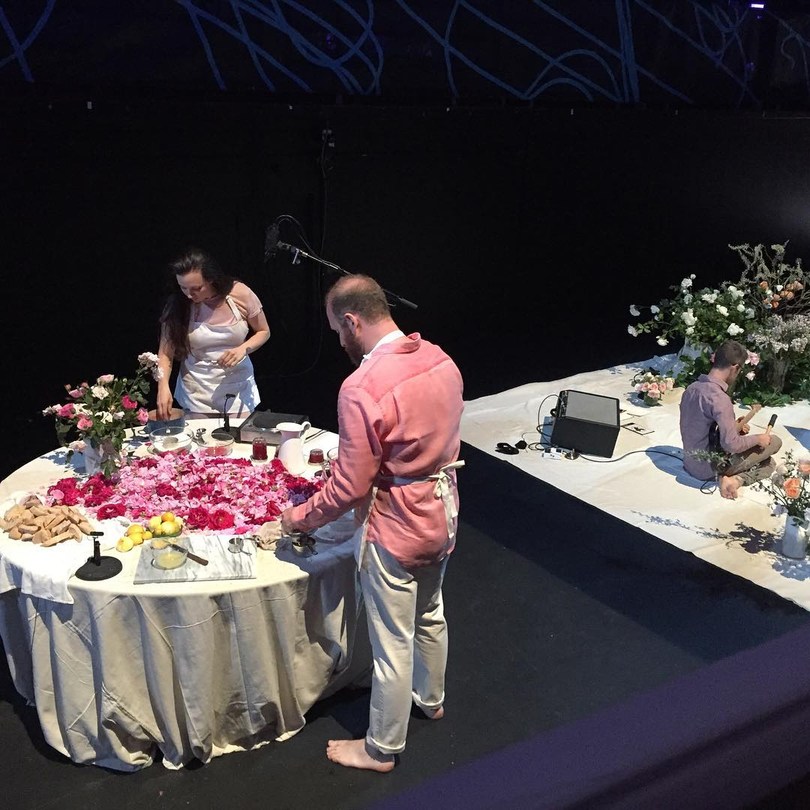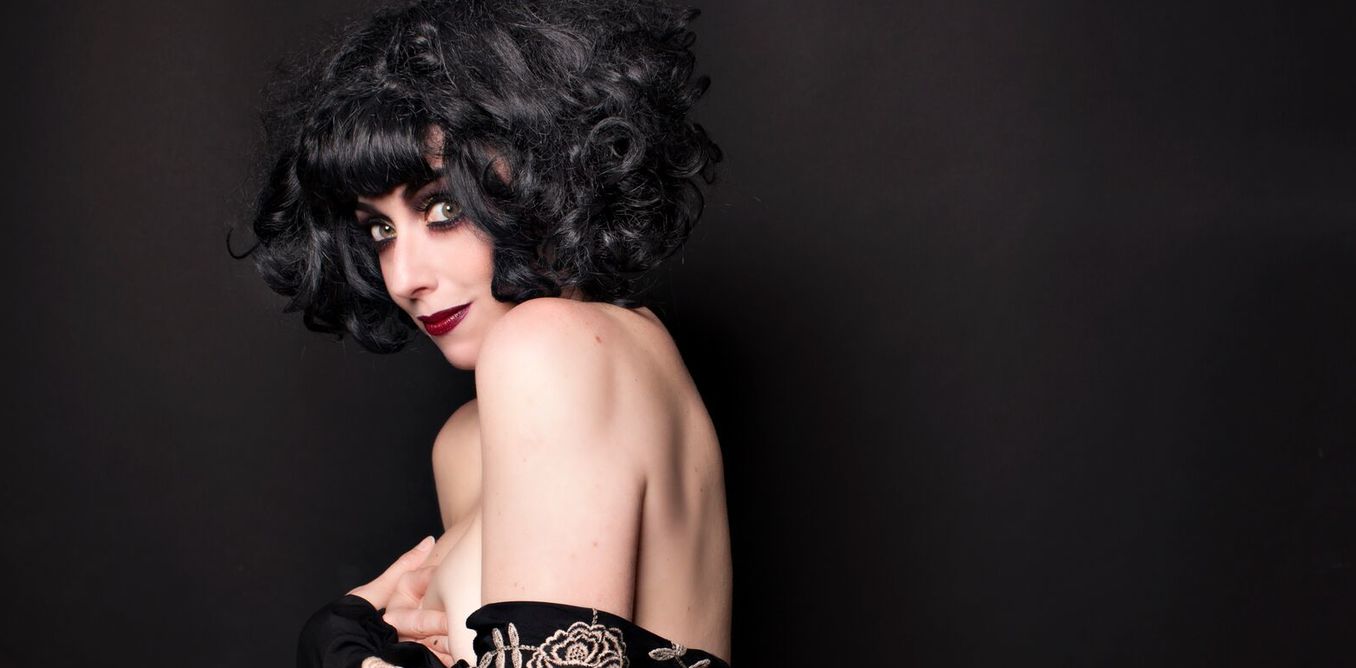Pink Martini @ 25

“If the United Nations had a house band in 1962, hopefully we’d be that band.”
– Pink Martini bandleader/pianist Thomas Lauderdale
While the human, linguistic and musical diversity of Pink Martini does indeed make it an obviously appropriate candidate for such a gig, in a perfect world Pink Martini would be the house band everywhere, all the time. The Portland-based ensemble is celebrating its 25th year, and Sunday night was the anniversary of its first live performance back in 1994. To celebrate, the “little orchestra” gathered up many of its musical partners from over the years, brought along a 12-piece string section for some extra sheen, and delighted a Kennedy Center audience for more than 2 1/2 hours during the opening night of Washington Performing Arts’ 2019-2020 season.
Pink Martini made its debut during the peak of the 90’s lounge/swing revival. Today few of its peers from that era remain active, and none ever came anywhere close to achieving Pink Martini’s level of success. Over the past 25 years, the band Thomas Lauderdale launched out of frustration with Portland’s musical options for political fundraisers has collaborated with a staggering array of talent including Phyllis Diller, Jimmy Scott, Carol Channing, Rita Moreno, Jane Powell, Rufus Wainwright, Michael Feinstein, Charo, Doc Severinsen, the von Trapps, The Chieftains, Wayne Newton, and Mamie Van Doren. They’ve performed with more than 70 orchestras around the globe, and have sold out performances in Europe and North America’s most prestigious concert halls. They’ve recorded nine albums which have sold more than 3 million copies, and they recently collaborated with Meow Meow on her Hotel Amour release. On tour constantly around the world, they show no sign of slowing down after 25 years.
That’s a unique level of success for any musical act, but it’s especially notable given the band’s roots. While Sunday night’s performance was an anniversary celebration, it functioned equally well as a masterclass on how to turn a niche act into a global success. There could be any number of reasons for Pink Martini’s success, but at its core I would place Lauderdale’s ability to identify and draw unique talents into his orbit and keep them there, and it certainly doesn’t hurt that those talents represent of a whole lot of humanity. Lauderdale describes Pink Martini as “the United Nations house band of 1962 meets Lawrence Welk on acid.” I can’t validate the acid part, but he’s definitely the Lawrence Welk in that equation. However, at its core, Pink Martini is a gloriously diverse group of people singing alluring music in multiple languages. They really could be the house band for the U.N. — yesterday, today, and tomorrow. That’s something none of their 90’s peers ever came close to achieving, or even thought about.
Sunday’s show featured an especially rich line-up of current and past members: China Forbes, Storm Large, Meow Meow, Timothy Nishimoto, Pepe Raphael, Ari Shapiro, Edna Vasquez, Amanda von Trapp, and Jimmie Herrod. Lauderdale is Pink Martini’s leader, but he’s not the frontman. He may stand up from his piano bench and share some anecdotes about the group’s history or its music, but he mostly serves as a somewhat reticent master of ceremonies — he’s smart enough to know no one really wants Lawrence Welk to take the spotlight for long.
The first vocalist of many this night was China Forbes, who met Lauderdale when they were both at Harvard. Forbes has sung with Pink Martini since 1995, and she can sing anything — jazz, salsa, cabaret tunes, lieder. She’s also written some of Pink Martini’s best numbers, including the ironic “Sympathique,” the title track from the group’s first album, and “Lilly,” a salsa-infused bonbon from the second album. Given her long-term association with the band, she serves as a kind of mistress-of-ceremonies after Lauderdale. She and NPR’s Scott Simon, a huge fan of the group and instrumental in helping introduce them to NPR’s audience, performed a number originally done by Sophia Loren and Peter Sellers called “Goodness Gracious Me.” The audience appreciated Simon’s presence and his obvious joy at being included, but ultimately the bit felt more awkward than fun.
Timothy Nishimoto was an early member of Pink Martini, but left to become a restaurateur, eventually rejoining them in 2008. Wearing the greatest looking suit I’ve ever seen, he sang the zany-sounding, Mancini-infused “Zundoko bushi.” Sung in Japanese, Nishimoto explained it was about a soldier going off to war. Despite its grim subject, the tune is extremely catchy. Edna Vasquez then sang “Besame Mucho,” (a little too corny at this point given what had come before it), and followed it with her own impressive, fado-tinged “Sola Soy.”
Then came something truly special.
Until doing some background for this piece, I was unaware that Jimmy Scott, one of the most uniquely gifted jazz singers of the 20th century, performed with Pink Martini. Scott died in 2014 at the age of 88, but his extraordinary talent seems to be fully resurrected in Jimmie Herrod, a young singer who’s been touring with Pink Martini. Herrod, currently Portland-based, has a voice that some might call a contralto, which is commonly how Scott’s voice was described. It was easy to mistake Scott’s voice for a woman’s. Herrod’s has a similar quality, but his voice is more androgynous, possessing a timbre that’s notably deeper and richer than a countertenor’s (and Scott’s for that matter). Herrod also has a range and the ability to hold a note that rivals Whitney Houston in her prime. He is the real deal — if he was singing anytime between 1955 and 1985, he’d likely be a superstar because of his off-the-charts talent. His first song of the night was “Exodus,” a signature tune of Jimmy Scott’s. Herrod’s voice astonished me. Later on he thrilled the audience again with “Tomorrow,” receiving the evening’s first standing ovation.
Storm Large, looking fantastic beyond words in a red Herve Legere Icon gown, was a surprise guest. In the second half she burned through Maria Tanase’s “Până când nu te iubeam,” singing in Romanian, as if she wanted to light the stage on fire. Large has incredible stage presence, and a natural theatrical flair, evident in the other songs in which she sang lead, including “Ich dich liebe,” (a track from the first Pink Martini album which was originally sung by Mamie Van Doren in the 1964 film Freddy and the Song of the Prairie), and the humorously bitter “And Then You’re Gone.” The latter became a kind of mini skit on the stage, a set-up for Ari Shapiro to follow her with “But Now I’m Back.” Shapiro also performed“Et maintenant,” followed by Forbes and Large singing Helen Reddy’s “I Am Woman,” inviting women (and anyone else interested) to join them onstage. About 50 people did before the Kennedy Center’s ushers blocked access to the stage.
Meow Meow started the second half with material from her new album, requesting help from hapless but game audience members (including me), and honestly I remember hardly anything about it because I was too busy following her directions.
The second half continued much like the first, with Forbes and Large taking turns singing lead, while the stage kept growing increasingly crowded, eventually packed with about 30 performers. That worked out for the best, creating the perfect ambiance onstage for Pepe Raphael, who began with the tango-bachata number “La Soledad,” then led everyone in the barn-burning mambo “¿Dónde estás, Yolanda?”
Time constraints killed the idea of leaving the stage for an encore, so after Forbes led everyone in a rousing version of the crowd favorite "Hey Eugene,” Herrod came out for “Tomorrow,” and the show ended with balloons falling from the rafters while Forbes and Large shared the lead in “Brasil.” No one went home unhappy. In fact my wife said apart from Taylor Mac’s performance last year, it was the greatest show she’s ever seen at the Kennedy Center.
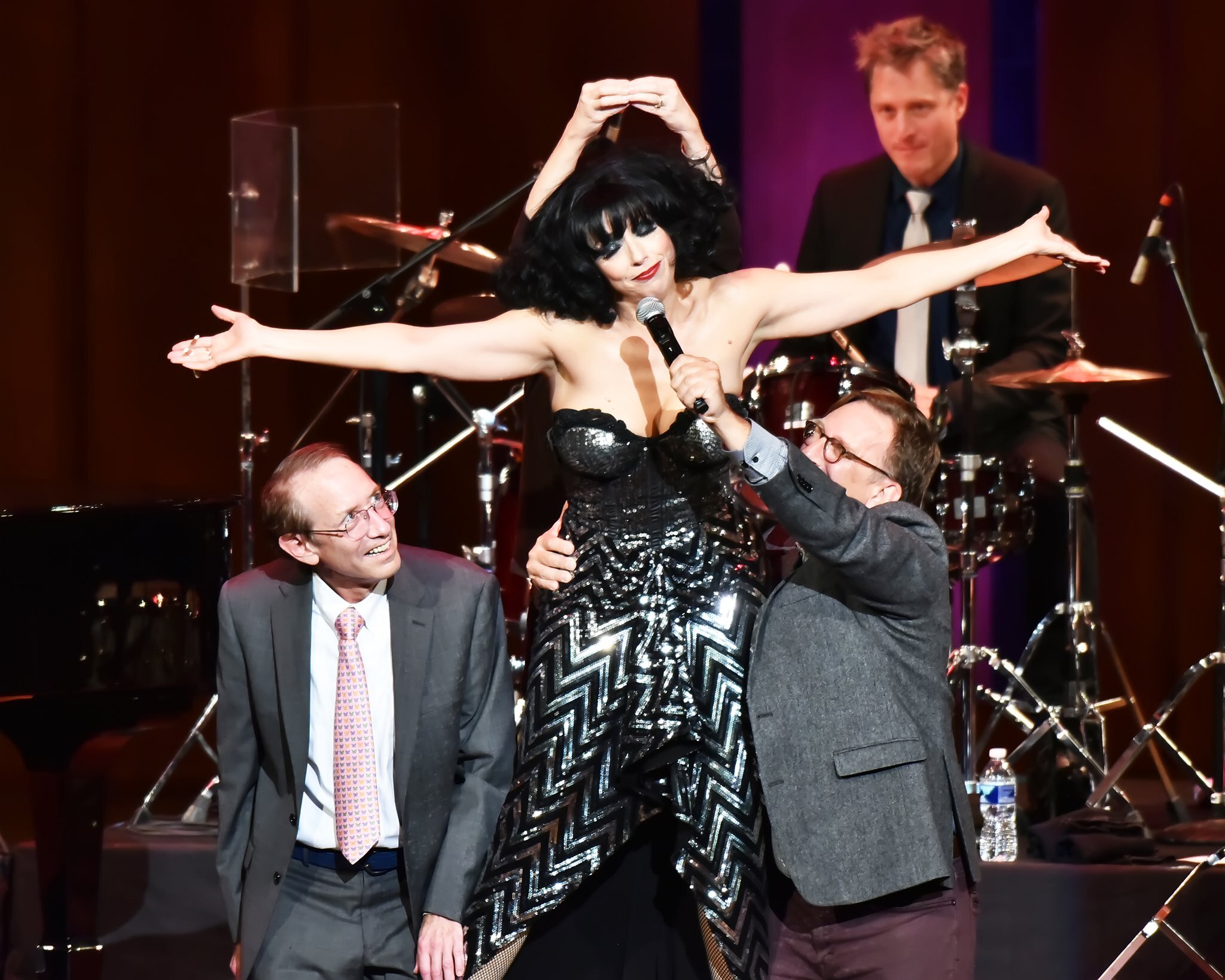
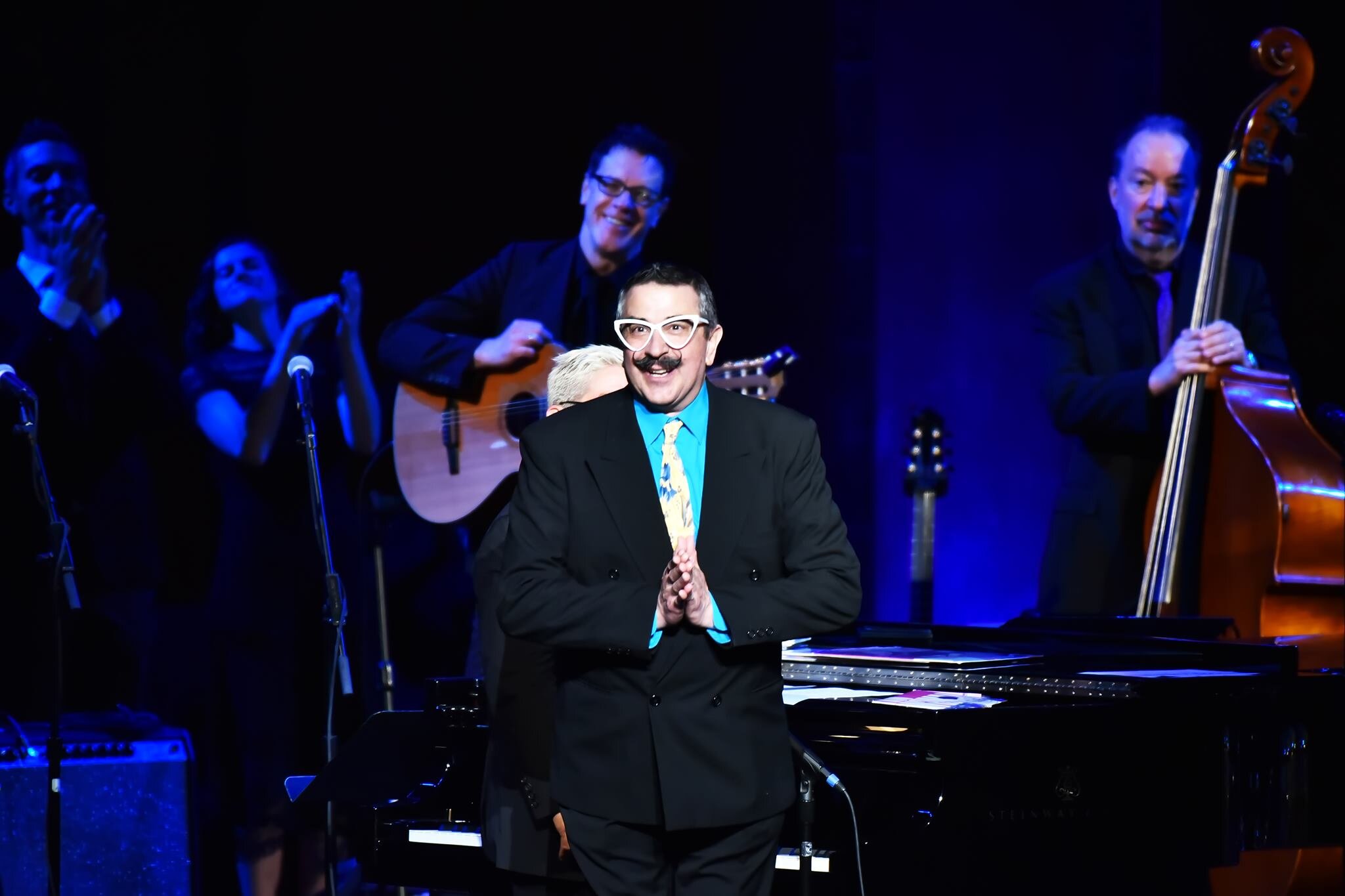
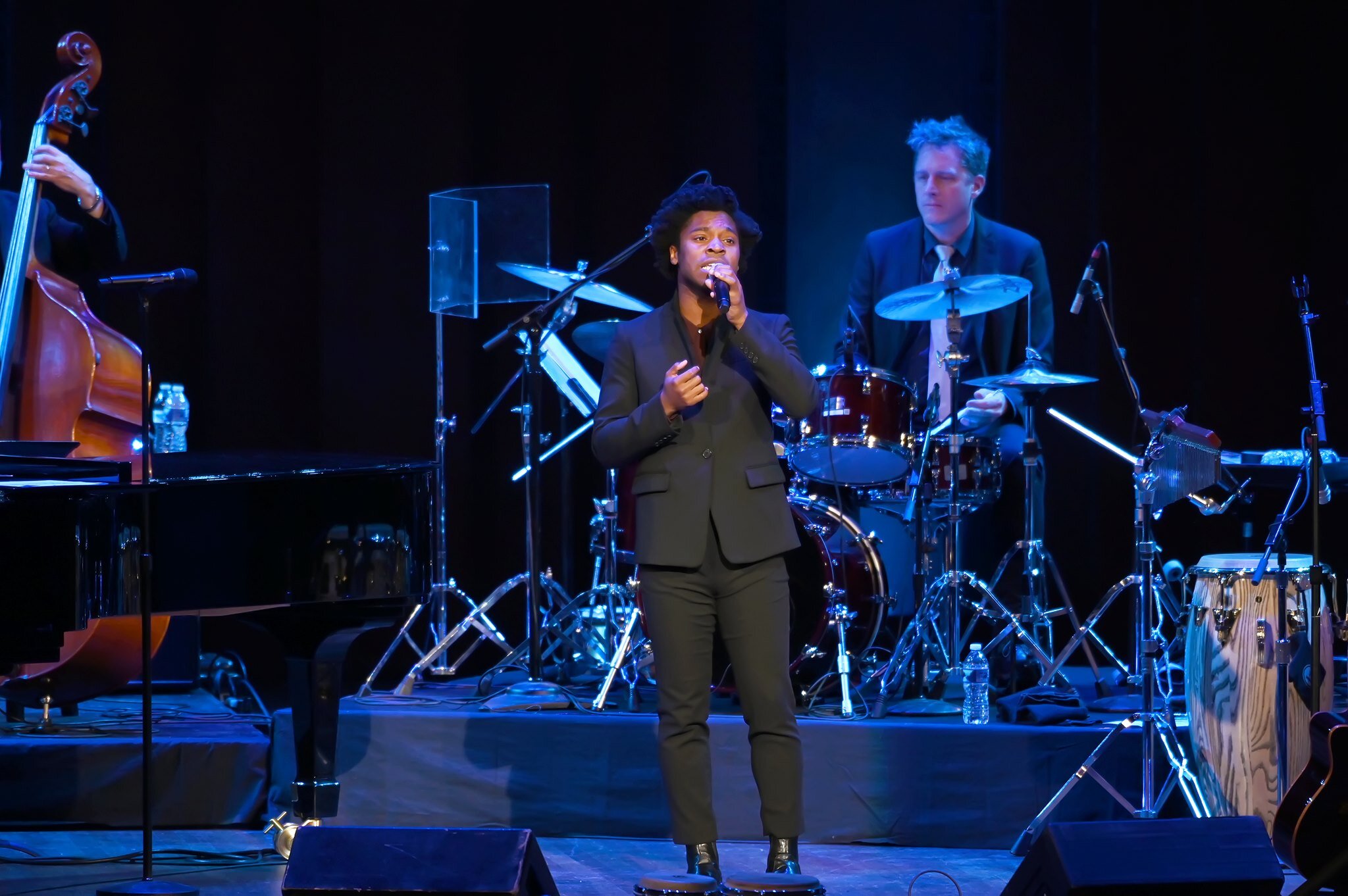
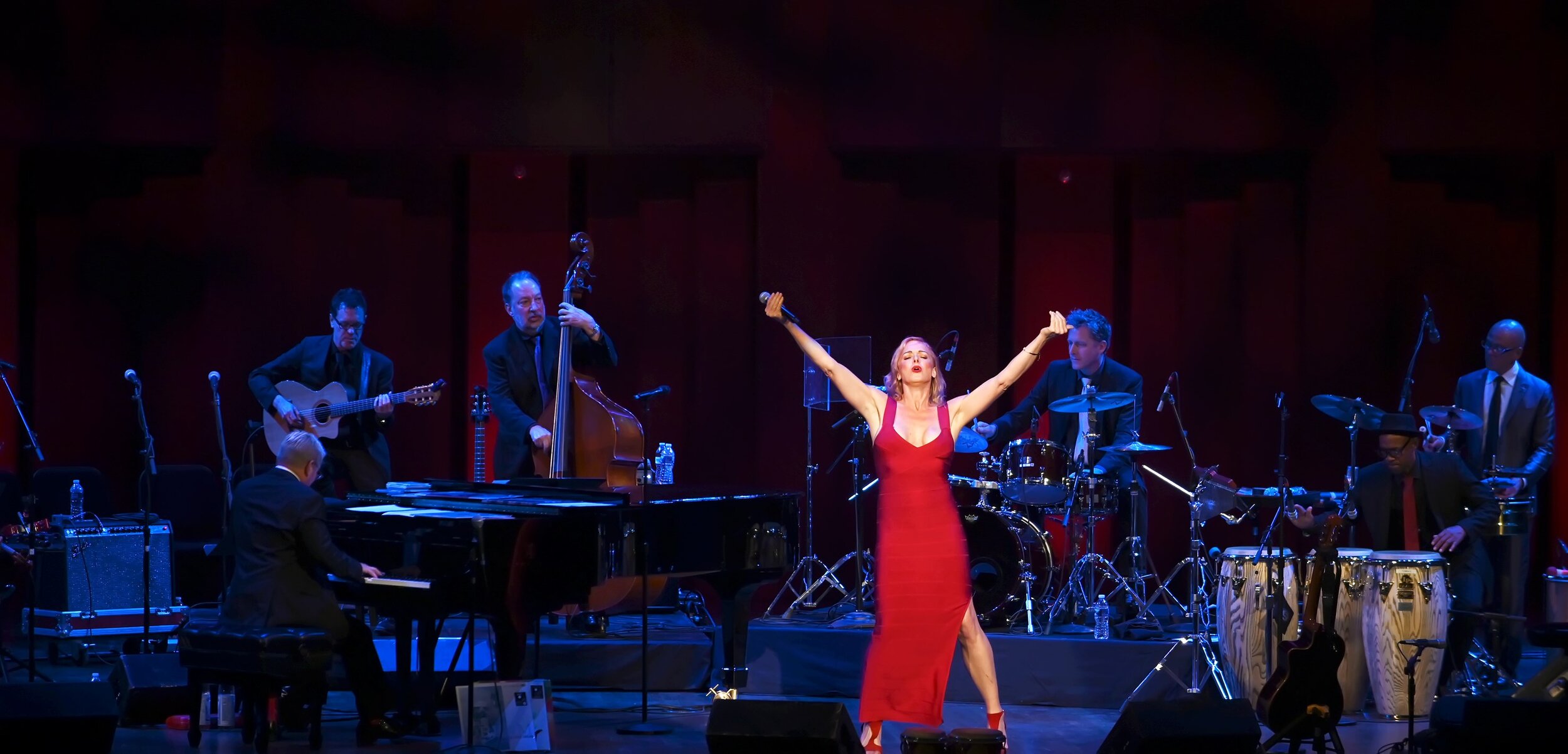
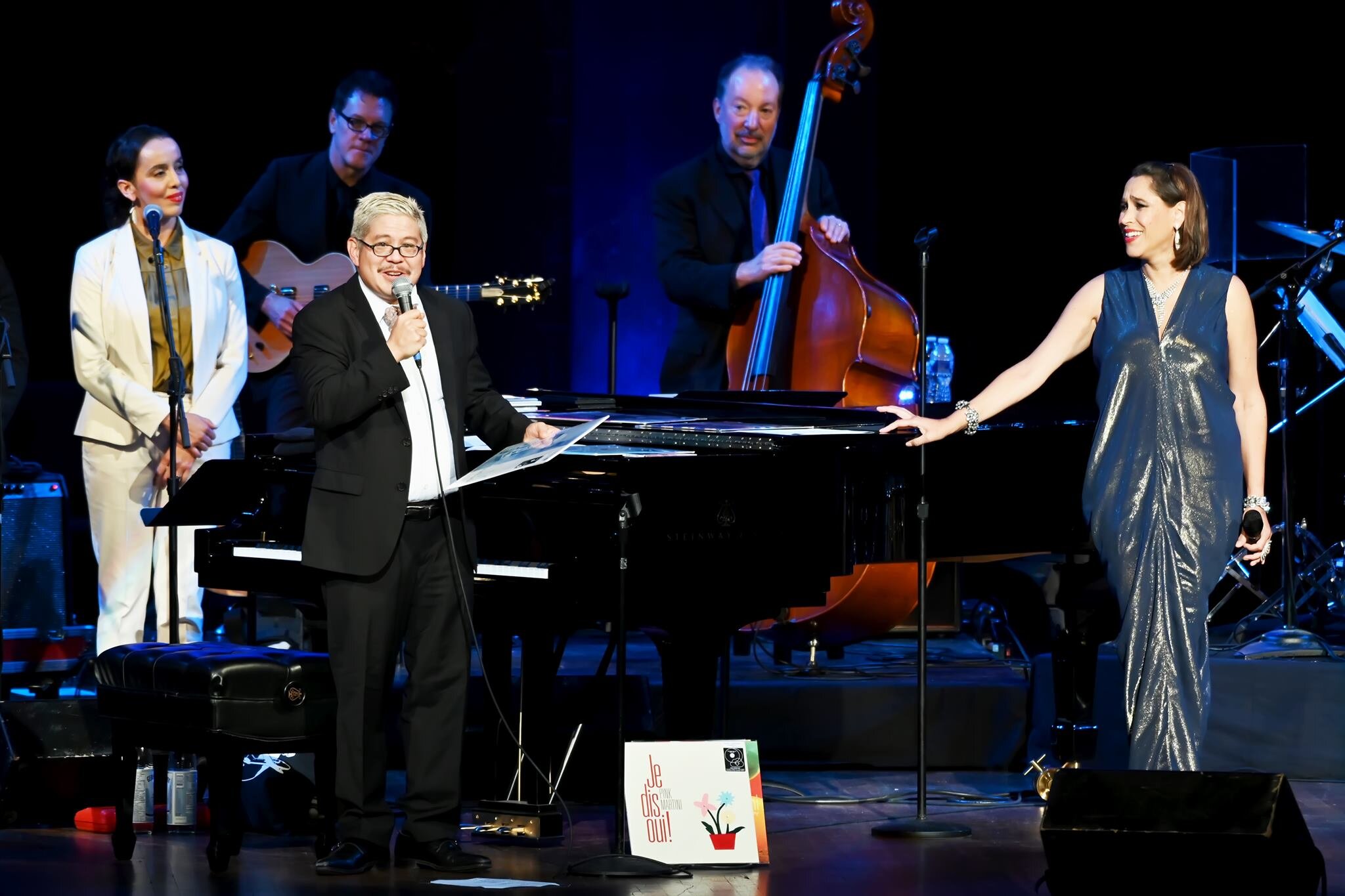
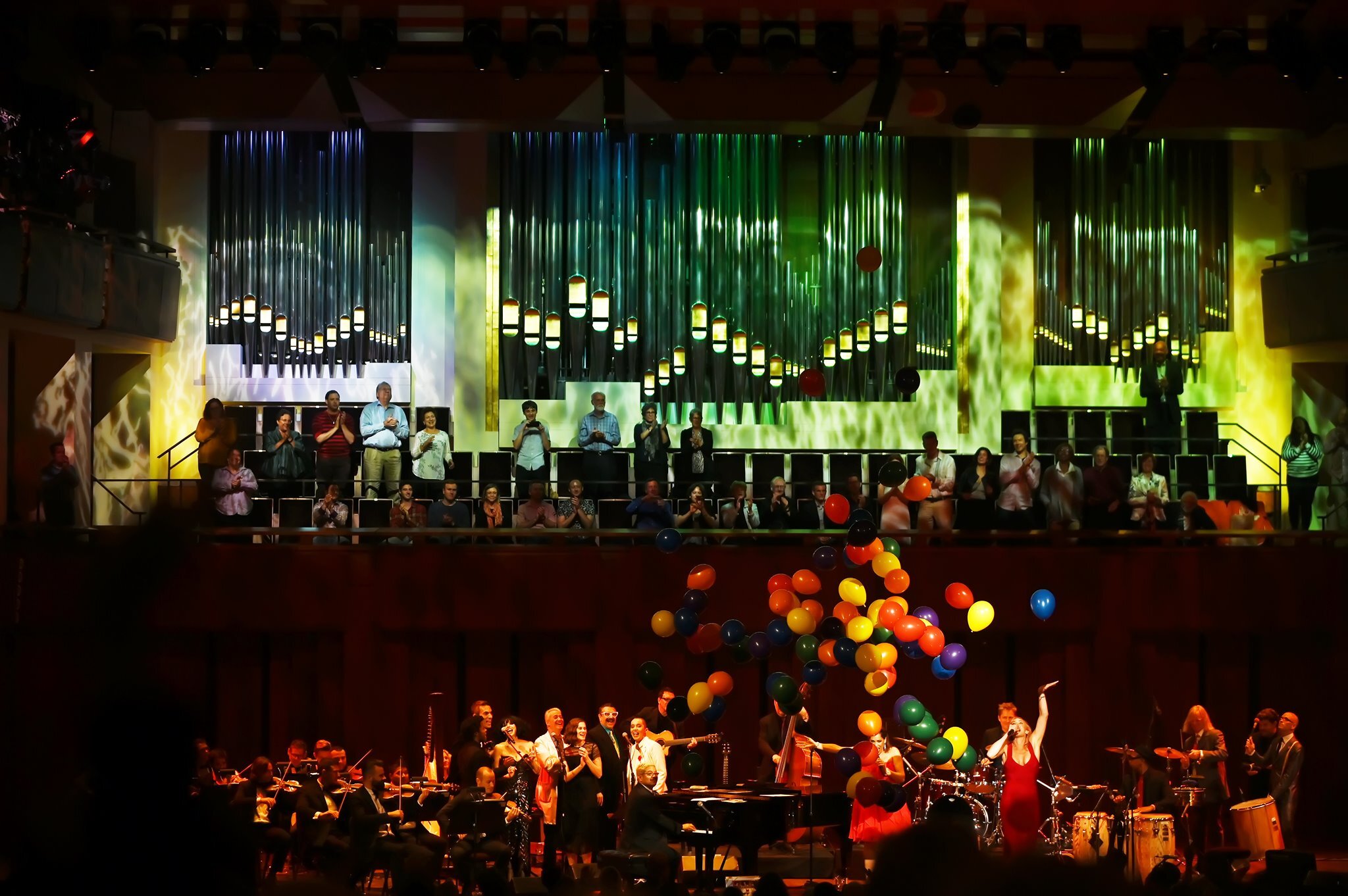
All photographs by Shannon Finney Photography.

